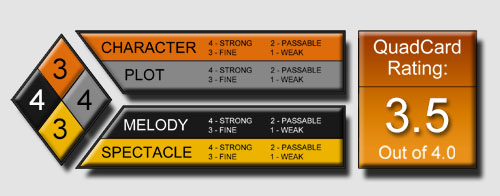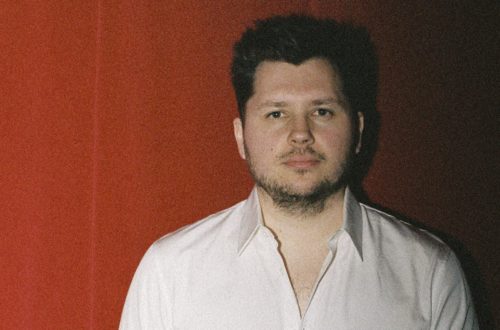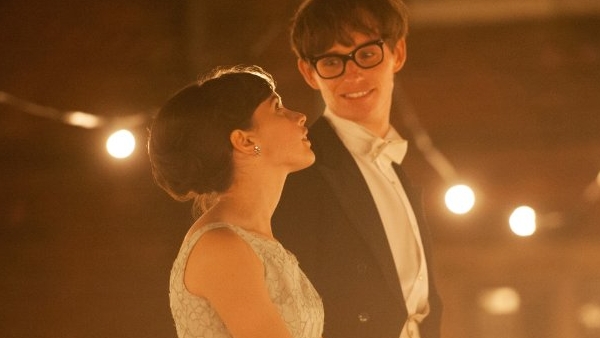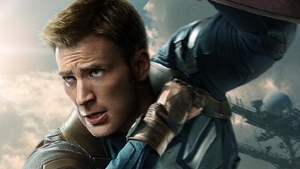 Marvel Studios continues their hit steak of their Avengers-based films with Captain America: The Winter Soldier. Following Chris Evans’s successful turn as Steve Rogers in Joe Johnston’s 2011, directors Anthony and Joe Russo trade old-fashioned heroics for a seemingly throwback ’70s themed spy film. This change in direction is refreshing and helps better align Cap with the other larger-than-life heroes in the Avengers line up – It’s also thrilling, suspenseful and action packed. Not just that but the film, with all the layers of depth (and secrecy!) to the story, and the execution of this very comic book styled plot are a fantastic second at bat for the character and the Marvel Cinematic Universe as a whole.
Marvel Studios continues their hit steak of their Avengers-based films with Captain America: The Winter Soldier. Following Chris Evans’s successful turn as Steve Rogers in Joe Johnston’s 2011, directors Anthony and Joe Russo trade old-fashioned heroics for a seemingly throwback ’70s themed spy film. This change in direction is refreshing and helps better align Cap with the other larger-than-life heroes in the Avengers line up – It’s also thrilling, suspenseful and action packed. Not just that but the film, with all the layers of depth (and secrecy!) to the story, and the execution of this very comic book styled plot are a fantastic second at bat for the character and the Marvel Cinematic Universe as a whole.
It’s arguable that Captain America is a tough property to adapt simply because he is not a product of our time, nor is he fit 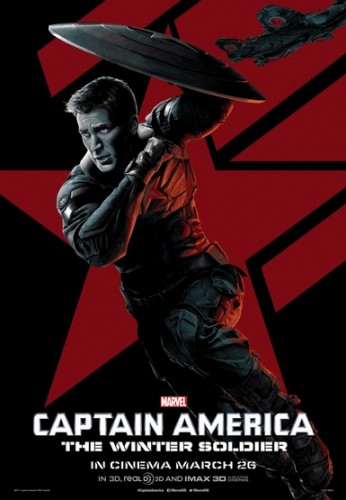 for it. That said, sometimes it takes an outsider’s perspective to shine a light on things that just don’t add up…and in this film, that’s a lot. Steeped in government conspiracy and not just double but triple agents, the fate of the free world is at risk because the organization known as Hydra has its tentacles deep in our government. While Cap alone can’t stop Hydra and its minions, he enlists the help of similarly patriotic individuals and it’s literally them against the world. The film falls back on rule number one in the spy handbook: trust no one. Beginning with Cap’s his very first mission he finds that the objectives aren’t clear and to make matters worse his compatriots show, very slowly, that they have hidden agendas. So, like we saw in The Avengers, Captain America sets to question the very people he believes are the good guys. In so doing he finds there are a very few stand up people among the legions of corrupt agents he can enlist to his cause.
for it. That said, sometimes it takes an outsider’s perspective to shine a light on things that just don’t add up…and in this film, that’s a lot. Steeped in government conspiracy and not just double but triple agents, the fate of the free world is at risk because the organization known as Hydra has its tentacles deep in our government. While Cap alone can’t stop Hydra and its minions, he enlists the help of similarly patriotic individuals and it’s literally them against the world. The film falls back on rule number one in the spy handbook: trust no one. Beginning with Cap’s his very first mission he finds that the objectives aren’t clear and to make matters worse his compatriots show, very slowly, that they have hidden agendas. So, like we saw in The Avengers, Captain America sets to question the very people he believes are the good guys. In so doing he finds there are a very few stand up people among the legions of corrupt agents he can enlist to his cause.
Co-directors Anthony Russo and Joe Russo have been very open admitting their love of ’60s and ’70s conspiracy films, and it’s obvious that this lead-in into the next Avengers film (in 2015) is a reverent nod to that genre. In the film the duo play up universal fears about everything from putting trust in your government (and your friends) to corporation-sized cover-ups and it gives the story a very real and tangible feel to it.
For all the attempts to make this feel as if it were styled after the films of Alan J. Pakula this sequel remembers its comic roots and throws in lots of action to offset the espionage. Other times it does plays like “the Cap and Natasha show” (as they, like gangbusters, investigate the breach of S.H.I.E.L.D. to identify Hydra’s misdeeds) but while skipping the steps that might move this into a love story, or a buddy cop adventure, Russos maintain that this is Captain America’s story. That said the trio of Evans, Johansson and Mackie play well off each other and were this not a Marvel property their chemistry could be seen working as well in any other type of film.
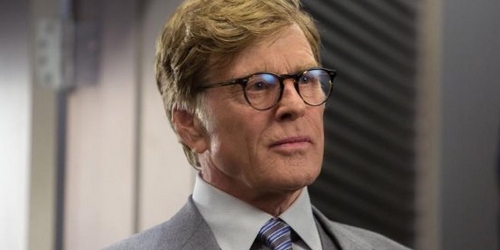
Evans has an obvious draw as Captain America. But when it feels like characters are just dropping dead left and right in comes Anthony Mackie and he makes a fine addition to the story playing The Falcon. He helps the story move forward but the Russos are also are able to loop back to include events/characters from Johnston’s film, specifically Peggy Carter (Hayley Atwell), and the Hydra scientist Arnim Zola (Toby Jones). Also the titular key element to this installment is the fact that Cap’s best friend, Bucky Barnes, did not die in the first film. He was resuscitated and then brainwashed into becoming The Winter Soldier. There’s a conflict there both on the surface and beneath it that is played very well without coming across too heavy-handed one way or another. While the same can’t be said for the first film, there’s really not a dull character in this entire story.
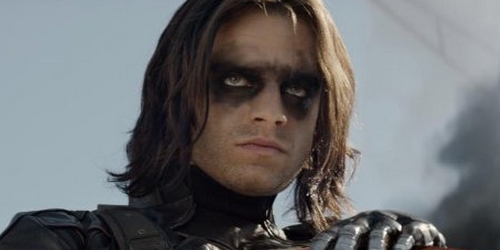
The Russo brothers (of You, Me and Dupree fame if you can believe it) do something extraordinary with this sequel. They improve on the first film in every way possible while retaining the charm of and reverence for Captain America. The action is intense, the story is gripping and the writing is razor sharp. Yet one element that just never came across as impacting as expected was the music. Henry Jackman, who gave immense vitality to X-Men: First Class, Wreck-It Ralph and a slew of other films, just never seemed to rise above the action or tension of the scenes. Perhaps it was an exercise in intentional restraint but while he was there in spirit he never made himself very present audibly.
Of all the things that felt thin and hokey in the first film Alan Silvestri’s score was probably the best take away from the whole affair. It really seemed like Jackman would give Capt’s second outing an equally memorable and energized anthem but sadly it wasn’t the case. Still that’s a highly superficial criticism.
G-S-T RULING:
All in all this is a fantastic installment not just expanding Captain America’s ongoing story line but also laying out how these events (some new and some carried over from earlier Marvel films) help lead up to the The Avengers: Age of Ultron. It seems that Marvel has worked the kinks out of most of their properties (still waiting to see if they’ve gotten the Hulk right but Ruffalo seemed to get the job done in The Avengers) and are making great steps forward in this cinematic universe. Right now the future’s looking really good for the studio and that should make comic fans (and film fans) everywhere very happy.
